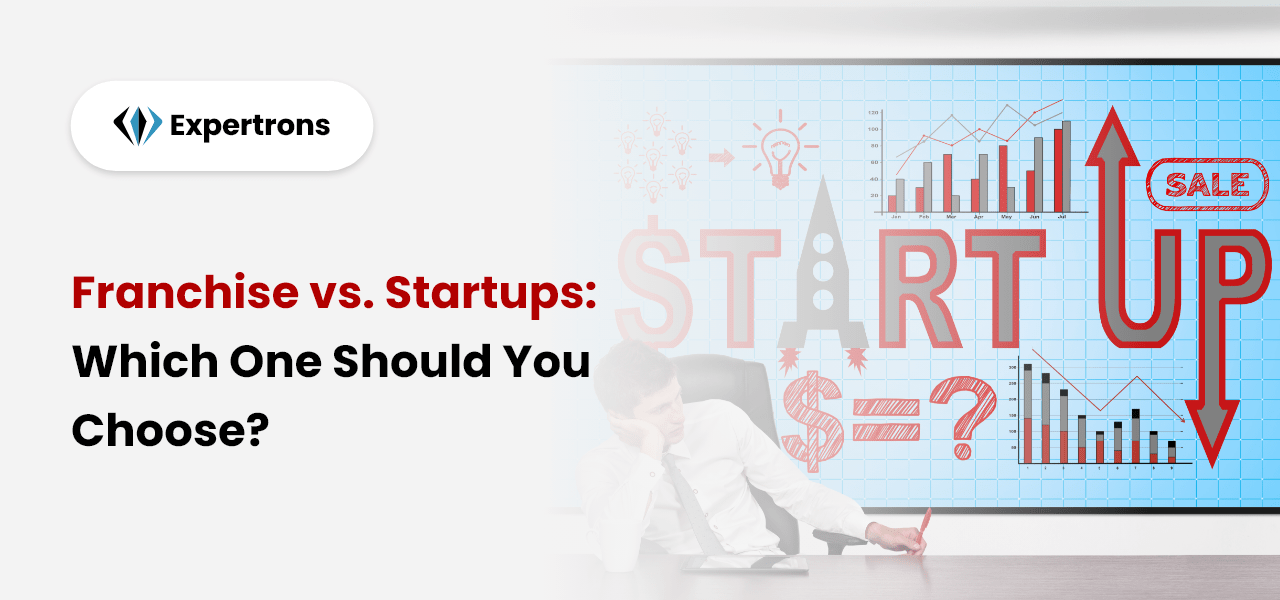Introduction
When considering entrepreneurship, the choice between starting a franchise or launching a startup is pivotal. Both avenues offer unique opportunities and challenges, but how do you decide which one is right for you? In this blog post, we’ll delve into the differences between franchises and startups, helping you make an informed decision about your entrepreneurial path.
Franchises
Franchises provide entrepreneurs with a proven business model, established brand recognition, and ongoing support from the franchisor. They offer a sense of security and stability, making them an attractive option for those who prefer a less risky venture. However, franchises often require significant upfront investment and ongoing royalties, limiting flexibility and autonomy.
Startups
Startups, on the other hand, are ventures built from the ground up, offering limitless potential for innovation and growth. They allow entrepreneurs to pursue their passion and create something entirely unique. While startups offer greater flexibility and control, they also come with higher risk and uncertainty. Success is not guaranteed, and failure rates can be high.
Comparing the Two
When weighing the pros and cons of franchises and startups, several factors come into play. Franchises offer a proven business model and built-in support system, making them ideal for those who value stability and predictability. Startups, meanwhile, provide unlimited potential for creativity and disruption, appealing to individuals with a high tolerance for risk and a strong entrepreneurial spirit.
Making the Decision
Ultimately, the decision between a franchise and a startup depends on your individual goals, preferences, and risk tolerance. Consider factors such as investment capital, industry experience, and personal interests when evaluating your options. Conduct thorough research, seek advice from experienced entrepreneurs, and carefully weigh the pros and cons before making your decision.
Also read, The Rise of Franchise Businesses: Exploring Opportunities in 2024
Conclusion
Choosing between a franchise and a startup is a significant decision that will impact your entrepreneurial journey. Both paths offer unique opportunities for success, but they also come with their own set of challenges. By understanding the differences between franchises and startups and considering your own goals and preferences, you can make an informed choice that sets you on the path to entrepreneurial success.
Frequently Asked Questions
A franchise is a business model in which a franchisor grants a franchisee the right to use its trademarks, business model, and operational systems in exchange for a fee and ongoing royalties.
Franchising works by allowing individuals (franchisees) to operate their own businesses using the branding, products, and systems of an established company (franchisor). Franchisees pay an initial franchise fee and ongoing royalties in exchange for the right to use the franchisor’s intellectual property and receive support.
Owning a franchise offers several advantages, including brand recognition, proven business models, training and support from the franchisor, established marketing strategies, and access to a network of other franchisees for guidance and support.
The cost of starting a franchise varies depending on the brand, industry, and location. Initial franchise fees typically range from a few thousand dollars to several hundred thousand dollars, in addition to ongoing royalties and other expenses.
Disadvantages of owning a franchise may include high startup costs, ongoing royalty payments, restrictions on business operations imposed by the franchisor, limited autonomy and decision-making authority, and potential conflicts with other franchisees.
A startup is a newly established business venture, typically characterized by innovation, rapid growth potential, and a high degree of uncertainty. Startups often seek to disrupt existing markets or create entirely new ones with innovative products or services.
Advantages of launching a startup include the potential for high growth and profitability, greater autonomy and flexibility in decision-making, the opportunity to pursue a passion or creative idea, and the ability to shape the direction of the business from the outset.
Challenges of running a startup may include securing funding, attracting customers, building a team, navigating legal and regulatory requirements, managing cash flow, and competing against established competitors.
The choice between a franchise and a startup depends on various factors, including your personal goals, preferences, risk tolerance, industry experience, and financial resources. Consider conducting thorough research, seeking advice from experienced entrepreneurs, and evaluating the pros and cons of each option before making a decision.
Yes, it is possible to convert an existing business into a franchise. However, the process involves careful planning, legal considerations, and collaboration with a franchising consultant or attorney to develop a franchise model, operations manual, and franchise agreement.











